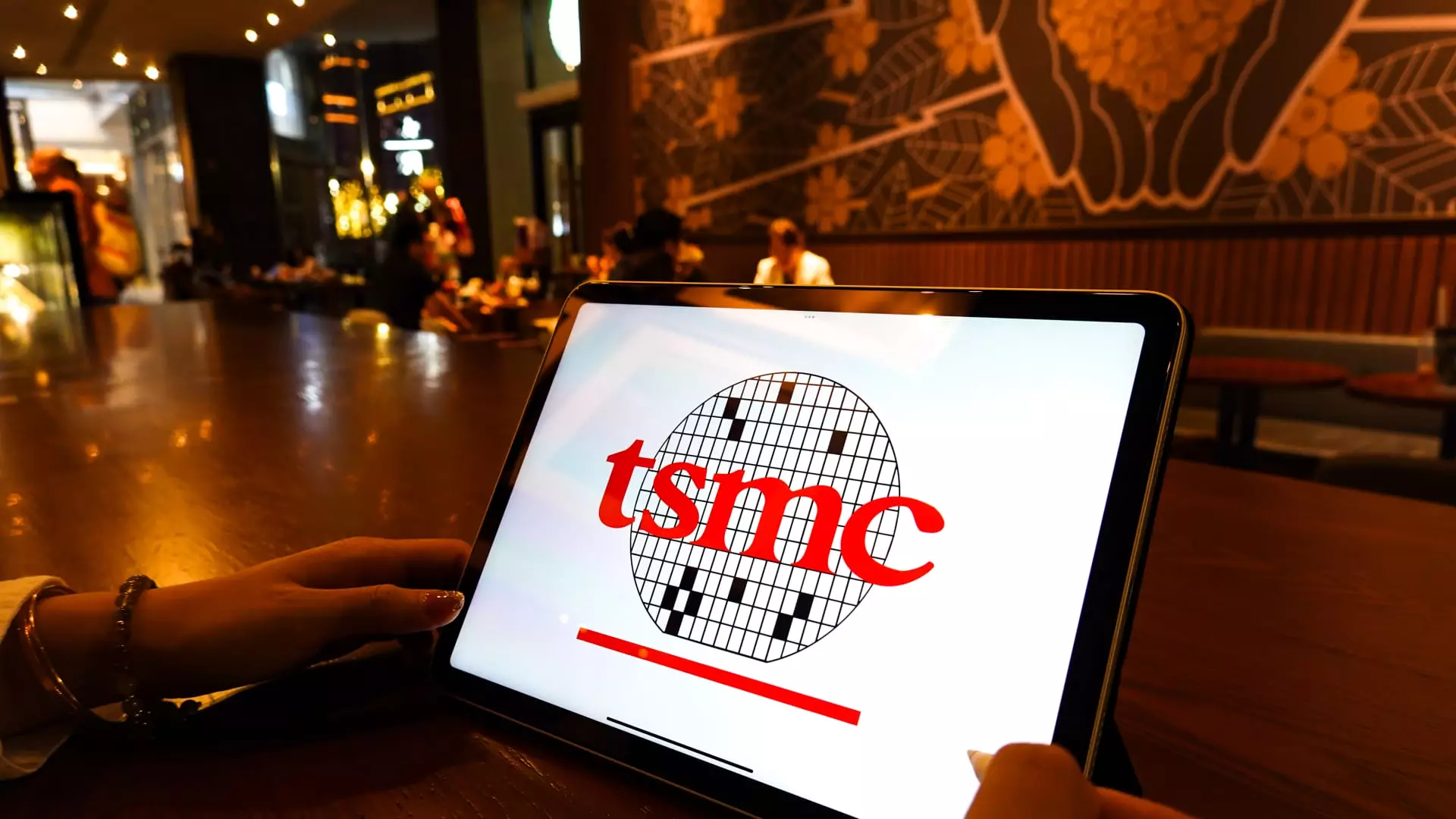On Thursday, Taiwan Semiconductor Manufacturing Company (TSMC) delivered impressive financial results for the third quarter of the year, highlighting a notable 54% increase in net profit. The company’s impressive performance can largely be attributed to the surging demand for semiconductors, particularly accelerated by the burgeoning field of artificial intelligence (AI). This growth trajectory is not only a marker of TSMC’s resilience but also a reflection of a wider trend impacting the semiconductor industry as a whole.
In the third quarter, TSMC reported net income of 325.3 billion Taiwanese dollars (approximately $10.1 billion), surpassing analyst expectations set by LSEG estimates, which anticipated a figure of around 300.2 billion Taiwanese dollars. This growth was accompanied by a substantial year-on-year increase in net revenue, which soared to $23.5 billion, marking a 36% improvement. TSMC’s gross margin also showed significant enhancement, climbing to 57.8%, indicating robust operational efficiencies.
The company is projecting that its revenue will reach between $26.1 billion and $26.9 billion in the upcoming fourth quarter, translating to an impressive anticipated sequential growth of 13% and a substantial year-over-year increase of approximately 35%. This positive outlook underscores the company’s strategic positioning within a marketplace increasingly defined by AI-related applications, which has become central to the company’s enterprise.
The emergence of artificial intelligence has undeniably transformed the semiconductor landscape, providing TSMC with buoyant demand for its advanced 3nm and 5nm technologies. TSMC’s capabilities in semiconductor manufacturing have made it an essential partner for leading tech firms, including Apple and Nvidia. During a recent earnings call, TSMC’s CEO C.C. Wei emphasized that the demand associated with AI is genuine and reflected a “deepest and widest growth” within the industry. This sentiment is echoed in TSMC’s ongoing communications with clients, particularly hyperscalers, who are increasingly focused on creating custom chips to meet their specific needs.
This dynamic landscape not only bolsters TSMC’s positioning as the leading chip manufacturer but also raises questions about the sustainability and longevity of the current AI trend. With companies worldwide racing to innovate, TSMC finds itself in the fortunate position of being at the forefront of this technological revolution. However, analysts remain vigilant, carefully assessing the potential for market fluctuations as companies navigate the unpredictable tides of AI development.
In a bid to maintain its competitive edge, TSMC has ramped up its capital expenditure, projecting it to exceed $30 billion for the year. This increase in investment signifies the company’s commitment to advancing its manufacturing capabilities, as evidenced by its recent third-quarter capex of $6.4 billion—a slight rise from previous quarters. The company’s extensive plans for global expansion further illustrate its ambition, notably with significant investments in the U.S., including three chip plants in Arizona, and the opening of its inaugural factory in Japan.
These calculated moves not only indicate TSMC’s strategy to cater to rising U.S. demand but also reflect a broader initiative to decrease dependence on concentrated supply chains, showcasing an adaptive approach to geopolitical tensions and changing market dynamics. Such a comprehensive strategy positions TSMC to navigate challenges while ensuring that it remains the supplier of choice for emerging technologies.
Despite TSMC’s bullish projections and successes, the broader market remains wary about the long-term viability of the AI boom. Reports from ASML, a crucial machine supplier to TSMC, suggest tempered expectations regarding future net sales, causing some investors to reflect on the associated risks. Furthermore, statements from leaders within the tech sector, such as Foxconn’s CEO Young Liu, highlight that while AI advancements are underway, significant development may still be forthcoming, suggesting that while currently fruitful, the AI-centric market may also yield uncertainties ahead.
TSMC’s recent earnings report paints a picture of a thriving company propelled by the explosion of AI demand. While their figures are remarkable, it’s essential to consider broader market factors and the sustainability of this growth. As we watch TSMC’s strategies evolve, the intersection of technological innovation and market realities will continuously shape the semiconductor landscape.

